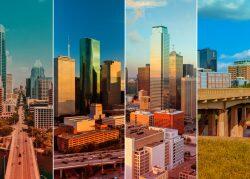The southern region of Dallas is getting its largest mixed-use project yet, thanks to a home-town developer.
Dallas developer Hoque Global is planning to build a 270-acre mixed-use project next to the campus of the University of North Texas at Dallas (UNT Dallas), according to a press release. The planned community will include residential properties and commercial buildings, as well as green space, the Dallas Culture Map reports, and will be the first large-scale mixed-use community of its kind in the southern Dallas area.
“We hope University Hills will be the first of many community-driven and neighborhood-building developments bringing much needed quality jobs and housing for the area to grow,” said Hoque Global CEO Mike Hoque in a press release.
Read more


The first phase of the project will bring over 500 single-family homes, 250 multifamily units, and nearly 200,000 square feet of commercial space to the area near the intersection of I-20 and Lancaster Road, but the goal is to considerably increase those numbers as development continues.
Hoque Global has a history of acquiring undeveloped land working in Dallas and has focused on developing in underserved communities.
There are already millions of square feet of industrial and warehouse space concentrated on the south side of I-20, according to DCM, and the demand for quality office space, life science facilities, and flex buildings for businesses in that sector will likely drive further development in the area.
This is only one of many large-scale projects unfolding across the Dallas-Fort Worth region as people and companies migrate to the region to take advantage of the business-friendly environment, affordability and the sheer volume of industrial investment space.
[Dallas Culture Map] — James Bell
